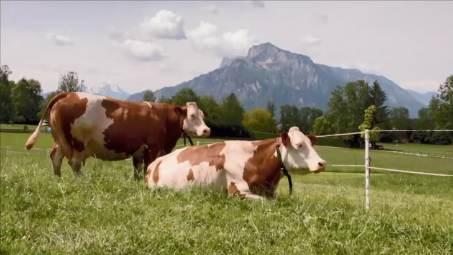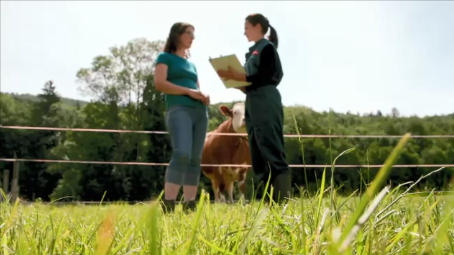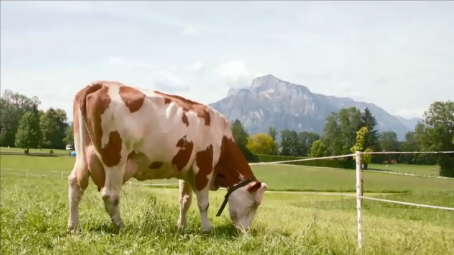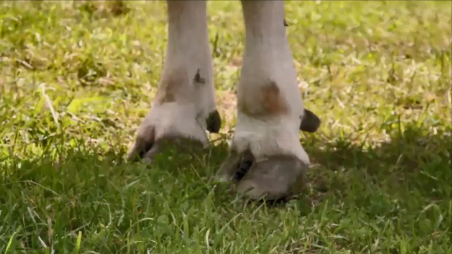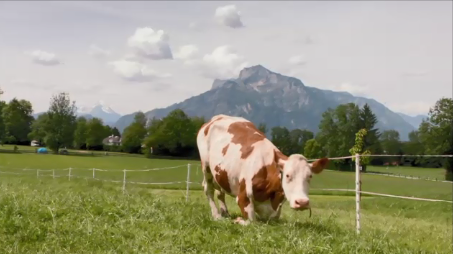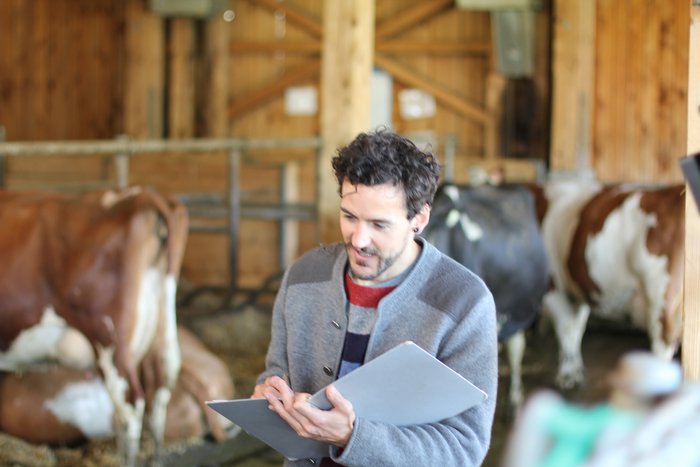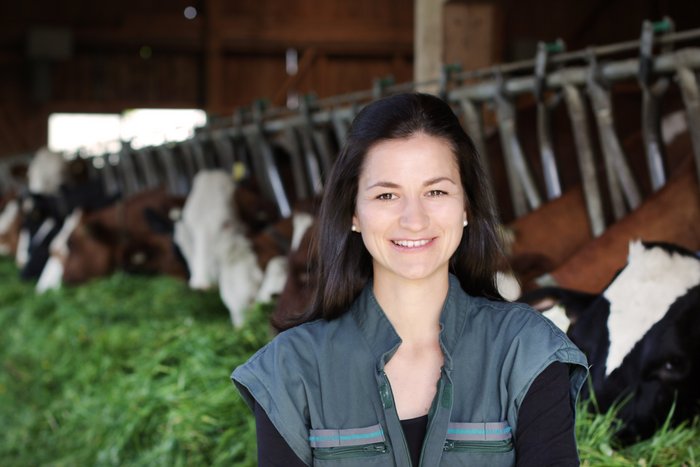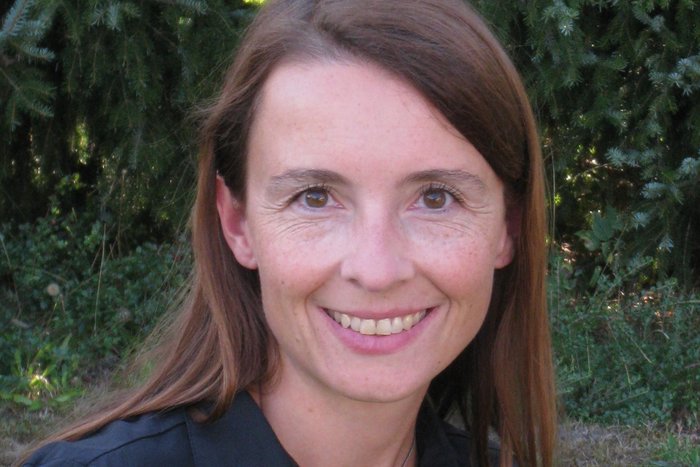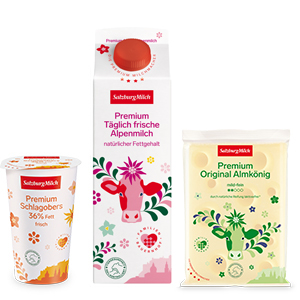



Animal health at SalzburgMilch
Our animal health initiative
SalzburgMilch, together with the regional farming families, is campaigning for more transparency regarding animal health.
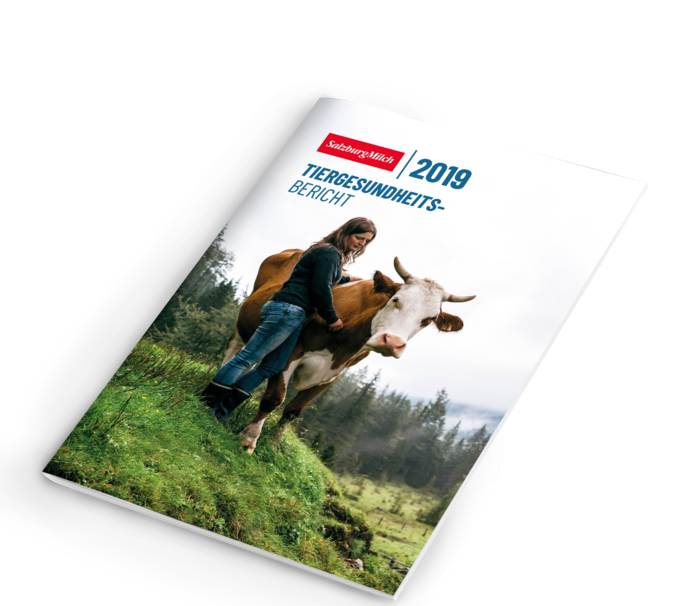
Animal health report to browse through and download (only available in German)
The new Guidelines for the Well-Being of Dairy Cows and Species-Appropriate Animal Husbandry were developed together with Austria's leading experts and are being implemented by all SalzburgMilch dairy farmers. They not only comply with the legal standards, but go beyond them. The result is the SalzburgMilch animal health initiative, which focuses on the important aspects of outdoor access, feed, health and species-appropriate husbandry for dairy cows.
The animal health checks developed by SalzburgMilch form the basis of this animal health initiative. For this, the University of Natural Resources and Life Sciences, Vienna (BOKU), has developed a protocol which enables independent inspectors to carry out health assessments. Based on the WelfareQuality® programme, it takes into account all principles of animal well-being – good husbandry, good feed, good health and species-appropriate behaviour – and as such makes it possible to obtain a comprehensive assessment of the animals' well-being.
SalzburgMilch has set up the Animal Health Advisory Board as the top committee of the animal health initiative. This is made up of Austrian experts, vets and dairy farmers. The independent expert committee assists and supports SalzburgMilch in implementing the measures to ensure animal health.




SalzburgMilch goes a step further
Independent animal health checks
SalzburgMilch is the only dairy where independent inspectors carry out regular animal health checks of all dairy cows. During these, for the first time, not just the husbandry criteria but also the animals themselves are examined. This is an objective assessment of the health of the individual animals as well as of the well-being of the herd as a whole. That's because a healthy herd is the basic prerequisite for the best milk.
Learn more about our animal health checks:




Benefits for people and animals
For people
- Healthy animals are a guarantee of high-quality milk – tested by independent bodies.
- Transparent guidelines of the animal health initiative give clear information about the source of the milk and the production environments on the farms of SalzburgMilch farmers.
- A reduction in CO2 emissions because no feed is imported from overseas. Our cows are fed exclusively on feed from Europe.
For the animals
- Access to their run and/or pasture at least 120 days a year. We are proud of having implemented this objective on all 2,500 farms belonging to our farmers.
- Palm-oil-free feed and the use of feed exclusively from Europe, in a quality completely free from GM.
- Regular animal health checks of all dairy cows by external inspectors on all farms of SalzburgMilch suppliers.




As the Austrian forerunner, we have asked experts to join us
The Animal Health Advisory Board at SalzburgMilch
The Salzburg Animal Health Advisory Board is unique in the dairy industry. On the initiative of SalzburgMilch, independent experts and leading specialists are working together to advise the dairy in matters relating to animal health and well-being.
The Advisory Board is made up of representatives from the University of Natural Resources and Life Sciences in Vienna, the Higher Federal Teaching and Research Association for Agriculture Raumberg-Gumpenstein, the Austrian Chamber of Veterinary Surgeons, the association "Land schafft Leben" and dairy farmers. The committee works independently and draws up recommendations on topics that it chooses itself. Additionally, the experts check the objectives and implementation of the SalzburgMilch animal well-being initiative.
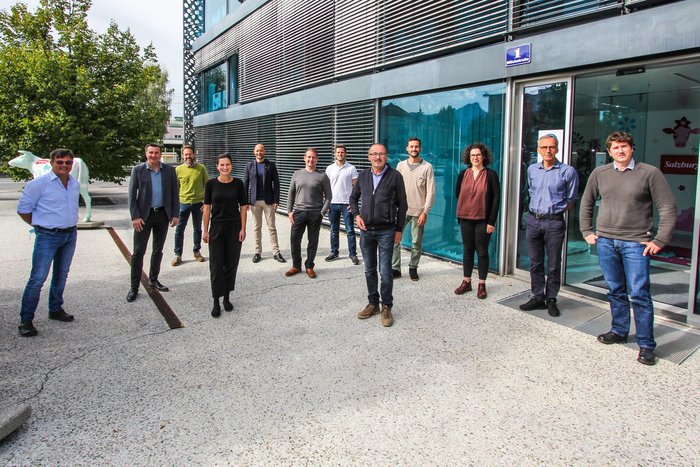
The SalzburgMilch dairy's own vet, is also a member of the Animal Health Advisory Board and assists the dairy farmers in implementing the recommendations. Furthermore, she develops measures for improvements with the farmers for the individual farms, which can often be implemented at low cost. Of course no cow can actually tell us what the launch of the animal health initiative has done for it. But there are several indicators that suggest that the "extra exercise" for the cows and the increased awareness of the dairy farmers are having a positive effect.





FAQ
Here you can find answers to the most frequently asked questions relating to animal husbandry and to our animal health check.
SalzburgMilch family farms are small-scale operations and have been run by the families for generations. On average, fewer than 20 dairy cows live on each farm, which means that the farmers know their animals extremely well. This makes it possible to have a good human-animal relationship for better animal health.
The family’s work is characterised by authenticity, personal commitment, and proximity to the animals. Through their daily work and the cultivation of meadows and fields, the regional dairy farmers also make an important contribution to preserving our natural habitat. SalzburgMilch is majority-owned by these farming families, and decisions are made for generations.
In contrast to the big "milk industries" in other European countries, the farms of the SalzburgMilch suppliers are small-scale. This means that on average, fewer than 20 dairy cows live on a farm, even though the size of the farms varies by region. The smallest farms only have 1-2 cows, the biggest many more. To compare this with Germany, where an average of 57 dairy cows were kept in 2015 - between 37 and 226 cows per farm on average depending on the federal state.
In addition to ensuring access to the run for at least 120 days per year, it is especially important to SalzburgMilch that all criteria relating to animal husbandry are observed in cowsheds. For example, every dairy cow must have a place to lie down. The area must be soft and yielding.
Combination husbandry means that the dairy cows of the SalzburgMilch farmers have access to their run or pasture on at least 120 days a year. Combination husbandry is needed in order to preserve small-scale farming structures in mountain regions. This rule is significantly stricter than the law, which stipulates access to the run or pasture on 90 days a year, and in exceptional cases still allows for permanent tethered housing.
The cows must be fed in a species-appropriate manner. Beyond the legal requirements, the cows and calves of SalzburgMilch farmers are only given feed which is free of palm oil and all purchased feed (e.g. supplementary feed) must be exclusively from Europe.
The dairy cows are only given cereals grown in Europe as supplementary feed, e.g. barley, oats, corn, etc.
In this area, the guidelines for all SalzburgMilch farmers match the legal organic guidelines. SalzburgMilch farmers are free to dehorn their calves or not, but this is subject to precise restrictions. According to these, dehorning may only take place in the first 6 weeks of life and only using sedation, local anaesthetics and post-operatively effective painkillers.
The risk potential of cows with horns is very high for people and animals. Extremely serious accidents have occurred in the past. The animals hurt each other on the pasture, which can lead to serious eye and skin injuries and even to broken bones. The biggest risk is also to the farmers' children and to the farmers themselves, when they approach the animals and are injured by their horns. If the calves are dehorned, then this happens only under sedation and alongside post-operatively administered effective painkillers. The animals do not suffer any pain and efforts are taken to ensure that the horns are removed expertly.
It is a special concern of SalzburgMilch to ensure that dairy cows are kept and cared for in the best possible way. We therefore also promote the use of homoeopathy, and SalzburgMilch pays a proportion of the attendance fee for basic courses on animal homoeopathy. The use homoeopathy increases the farmers' attention because they observe their cows' behaviour more closely. Unusual behaviour as an indication of an impending illness is often identified quickly.
SalzburgMilch's ****Premium Milk only comes from cows whose health is checked regularly. The criteria for this check were developed by independent experts together with SalzburgMilch and include aspects such as (1) good animal husbandry, (2) good feed, (3) good health and (4) species-appropriate behaviour, which the animal protection laws do not take into account, and which therefore go beyond the legal requirements. We are convinced that only milk from 100% healthy cows genuinely tastes good. Which is why SalzburgMilch assists its milk suppliers with advice in many matters relating to animal health.
SalzburgMilch is the only dairy to carry out regular animal health checks at all suppliers. The aim is an objective assessment of animal health as well as of the well-being of the herd as a whole. This is because the health of the herd is an indicator of the health of the individual cows and is a basic condition for the best milk. The checks evaluate the following factors, among others: human-animal relationship, the cows' nutritional condition, contamination, lameness, and hoof health.
Welfare Quality® is a multidimensional concept. It takes into account physical as well as mental health and considers various different aspects, such as good animal husbandry, good feed, good health and species-appropriate behaviour SalzburgMilch farmers make sure that animal husbandry meets the animals' needs and allows for species-appropriate behaviour.
The animal health checks are not performed by SalzburgMilch itself but by an independent expert from the University of Natural Resources and Life Sciences, Mr Josef Schenkenfelder (PhD candidate at BOKU), as well as by the LKV (State Supervisory Association) and the SLK (Salzburger Landwirtschaftliche Kontrolle GmbH).
All of the approx. 2,500 dairy cow businesses were evaluated for the first time before 31/12/2018. The cows are examined again regularly, however at least every three years, by an independent body. The independent inspectors were trained accordingly at the University for Natural Resources and Life Sciences, because there were no previous trained inspectors for animal well-being criteria in dairy cow businesses. As a result, additional higher-level controls are needed at certain intervals in order to ensure the objectivity and consistent quality of the checks (the parameters being monitored) and provide further training for the inspectors if needed (observer training).
No, there have been no regular, mandatory health checks for dairy cows in this format until now. What's special about the SalzburgMilch animal health check is that it involves very detailed monitoring and observations of social behaviour, such as human-animal relationships, the cows' gait, etc.
Yes, any use of antibiotics is documented, and they may only be administered in the case of illness. Sometimes they are needed for animal health, but the use of antibiotics should remain an exception. Depending on the antibiotic, the milk must be destroyed for a period of between 5 and 40 days following administration of the antibiotic. SalzburgMilch generally promotes the use of homoeopathic methods to safeguard animal health. This is why SalzburgMilch funds homoeopathy courses for its farmers.
SalzburgMilch is the only dairy in Austria to employ a vet. She does not perform examinations herself but assists the farmers with advice and help in questions relating to animal health.


